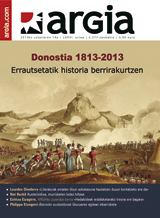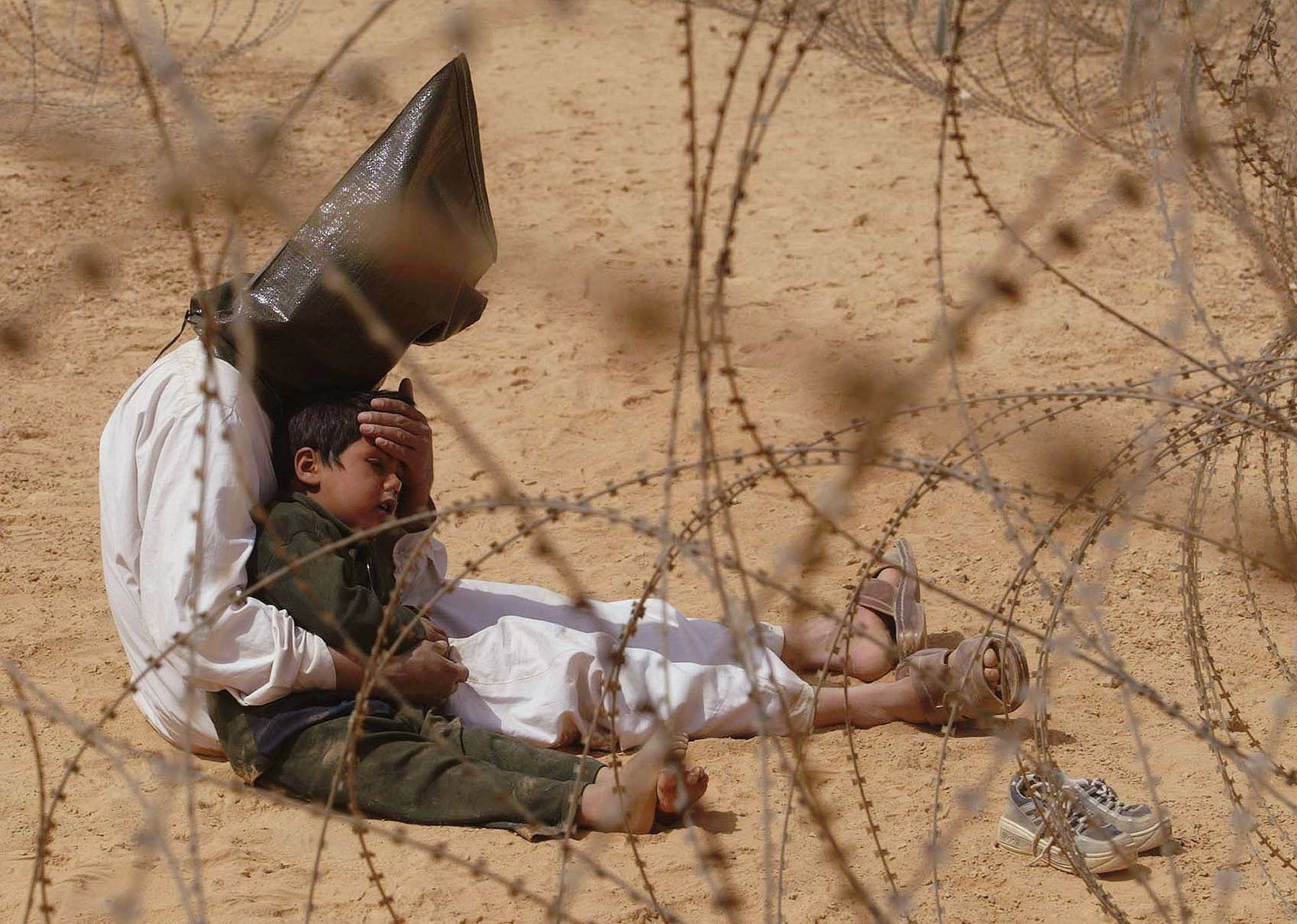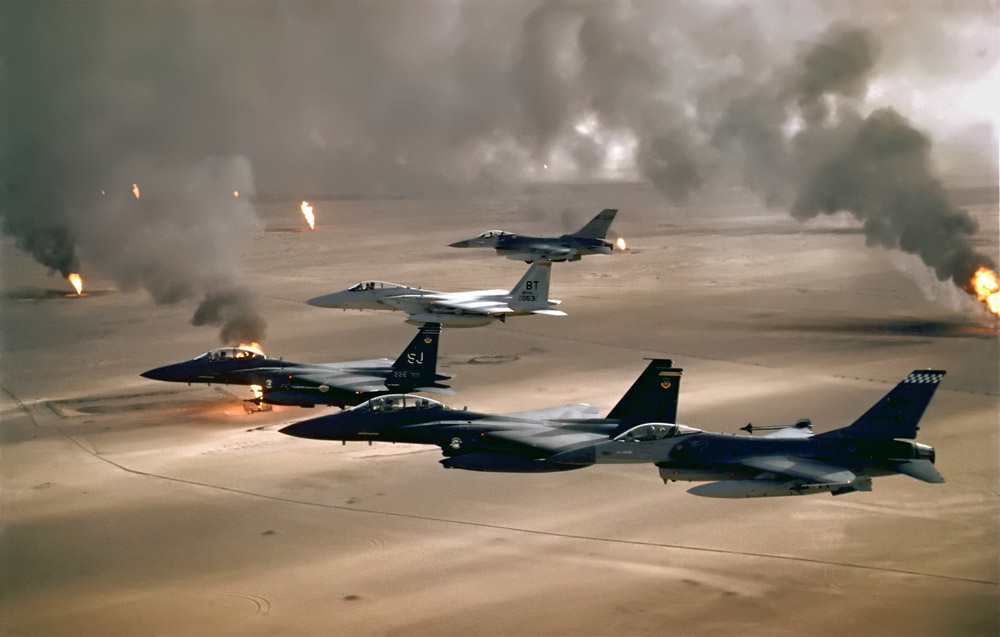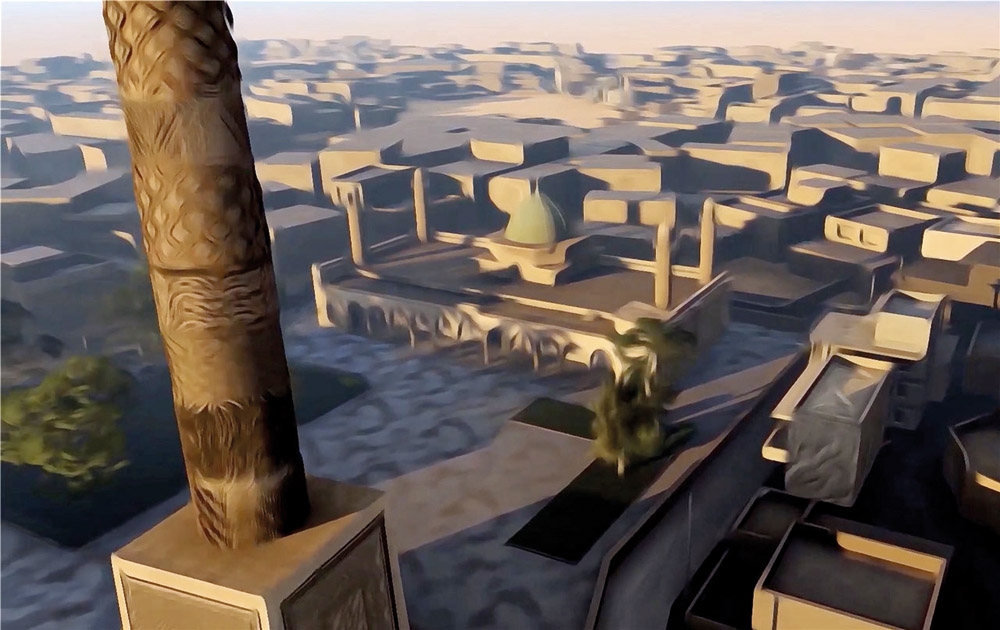Christians seek paradises
- The Christians of Iraq, under the endemic evil of sectarian violence, are currently claiming an autonomous region. It would be the only opportunity for this millennial community to survive.
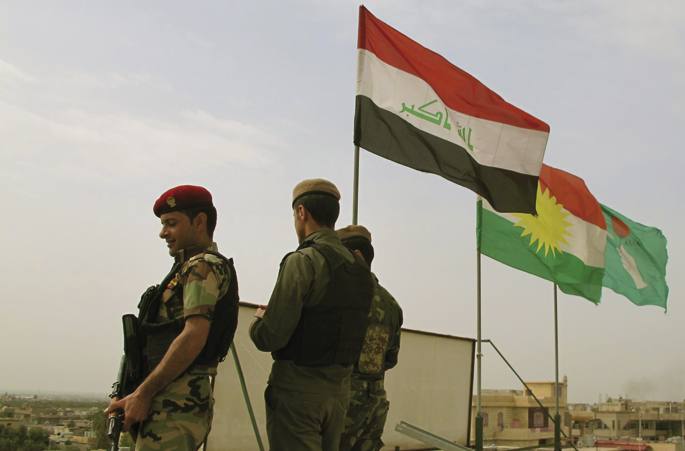
Luis Shabi remembers with nostalgia his nine years of life in Rome. After being novitiate there, he returned to Iraq in 1969, “on a wonderful journey through Europe.” Shabi is the archbishop of Baghdad. For the interview we met in the east of the Iraqi capital, in his office of the church of Santa Maria de Rosario, in a basement. It is a simple temple, protected by concrete walls, surrounded by spicy wires and soldiers. “Our people have always been pacifist and hardworking. In addition, thanks to the contributions of writers, poets and philosophers, we gained fame and prestige in Iraqi culture. Unfortunately, since 2003, extremists have been trying to change that image; they say we are newcomers, representatives of the West in the Middle East.” In his speech the prior goes from English to Italian, but he would like to highlight the words: “Nor did it make us any favor that there were Christian ministers who acted in the time of Saddam Hussein, it was wrong.”
“What has Europe done to help us? What about Rome? At the worst time in our history, the European civil and religious authorities have done nothing.” Shabi is clear that, in addition to the East, there is no other Christian in the world.
In addition to the community of Iraqi leaders – nine out of ten have died or fled in 2003 – Christians have suffered the most. According to UNHCR data, the Association of Confessional Christians had stood at around one million ten years ago. This figure has now been halved. “We are not Arabs, we are Semites. We talked about Arameo, and we lived in Mesopotamia since the time of Hamurabi. We are sons of Abraham and Nebuchadnezzar. We have a long history of 6,000 years, but the future could end tomorrow.”
On foot it takes ten minutes to reach another nearby church, the Church of Our Lady of Eternal Help. It is a church of white, long, avant-garde facades, elegant between the crazy and monotonous constructions of the area. Soldiers with gray camouflage record from the top down everything they want to enter the temple. After last year’s renovation work, the building is in an immaculate state. But the inner experiences are very different. “It was five. They jumped above the concrete walls and began to fire in the church, shouting ‘Allah is great’. They were said to be part of the Islamic State of Iraq (a group linked to Al-Kaeda), which called itself an Islamic State. It was October 31, 2010, when we were at Mass.” The tragic event has become unforgettable in the memory of the current rector, Aysur Said.
In the cruel attack suffered by this community since 2003, Aita Waseen, prior to Said, among other 50 people, also died. "Some died in the shooting, others drowned. They were locked in an adjoining room and, without windows, drowned right away.”
“Imagine,” he continues, “you, to enter here today, have had to pass two checkpoints guarded by three soldiers, right? Well, there was none on the day of aggression. This is Iraq, we don't trust anyone here, let alone the police. Since the attack, the Government has given us permission for the soldiers in the second checkpoint to be Christians. We have been doing it for years, but 50 people have died until they have heeded us.”
Garden of Eden
Following this massacre, Iraqi Christians immediately claimed an autonomous region in the plains near Nineveh, in the north-west of the country. According to the Bible, there is the garden of Eden, but it is the part of the land that the Kurds and the Arabs claim today. Mosul is also its administrative capital, the historic stronghold of Saddam Hussein, which since December has become the scene of protests against the government.
Although Mosul is nearby (just about 30 kilometres away), the village of Baxika is a little more tranquil due to the expansion of the Peshmerg Kurdish soldiers. It is a mixed population, in which jihidi, Shabakh, Kurds and Christians live. This people would also be integrated into the autonomous project of Christians.
“The solidarity of all Iraqis is fundamental,” says Father Daniel, head of the Orthodox Assyrian church, Mart Shmouni. The 23-year-old does not look favourably on the autonomous project. However, it recognizes that the official discourse of national solidarity is also becoming more and more difficult. “The new Baghdad command is not able to protect us and our people are fleeing. On the contrary, in recent months, many Christian families have come from Syria to seek asylum. They go to the gallop and many arrive with hardly anything. There are not very many who are heading towards an autonomous Kurdish region in search of security. Baxika’s stop is usually halfway.”
There is no doubt that Kirkuk is today the main district of the Arabs and Kurds. There, Imad Yokhana Yago, a parliamentarian of the Assyrian Democratic Movement, lives in pain the mass flight of his people, which was provoked by the threat of a war between Kurds, Sunni and Shiites.
“In neighborhoods like Mosul, Kirkuk or Dora (south of Baghdad) it is a systematic genocide that is happening, they are not isolated cases,” says Yago. Exclusion is based on the Constitution itself, “Islam is the foundation of official religion and legislation.” So the honourable Member claims a project tailored to his community. “If we had an autonomous Christian region in Nineveh, we would live under shelter and, in addition, the region could produce discouragement around the groups that are in conflict. We know that it will be painful to bring Basra, Baghdad and other Iraqi Christians, but that may be the only way for them not to leave the country.”
Why not us?
In the Kurdish city of Dohuk, Christian-run alcohol shops are as numerous as belfry. In addition to the Kurdish persecutors, only they can sell alcoholic beverages. In the office of the Assyrian Democratic Movement, political representative Yousif Eisho very much appreciates the security of the region and its relations with the Kurdish Government. But it asks for more: “It is clear that we are Iraqis, but not Kurds or Arabs; we are Assyrians, we have a language and history that sets us apart from our neighbours. We demand basic rights, such as the right to education in our language. Moreover, if the Kurds have the right to be an autonomous region, why not us?”
The Nineveh project is very controversial and many fear that the region will not become a kind of ghetto for this country. Yousif Eisho does not share: “The persecution we are suffering never comes from the Arabs of Iraq. Iran, Saudi Arabia… Many have participated in the ethnic cleansing of our people. As long as this external interference is allowed, ghetto will become a reality.”
Segurtasun egoera gorria den arren, ez dira gutxi Irak barruan oraindik dauden kristautasunaren adarrak. Kaldearrek (“kaldani” arabieraz) osatzen dute handiena, 2003ko inbasioaren aurretik milioi erdi bat ziren –herrialde osoko kristau populazioaren ia erdia–. 1830ean Vatikanoko dogma onartu eta asiriar elizatik eszisio gisa sortu zen. Edonola, latinaren ordez arameera –Jesukristoren hizkuntza– erabiltzen dute euren liturgian. Bigarren talde nagusia asiriar eliza da, “nestoriarra” izenaz ere ezaguna. Kristautasunaren adar zaharrenetakoa da eta Jesukristoren dualtasuna onartzen du: gizakiarena eta Jainkoarena –bakarra onartzen du katolizismoak–. Arameera ere erabiltzen dute liturgian. Kopuru urriagoak badituzte ere, Irakeko iparraldean komunitate siriako-ortodoxoak edo “jakobitak” topa daitezke, baita siriako-katolikoak ere. Bi adarrok monofisitak dira, hots Jesukristoren gizatasuna ukatzen dute.
This photo turns 20 and that EE.UU. He invaded Iraq with his European mariachis. The arguments were the deterioration of the “weapons of mass destruction” and the “liberation” of the country. One country was destroyed: over half a million Iraqis, mostly civilians, caused... [+]
Gudarako droneen teknologian milioika dolarreko inbertsioak egin ostean, “historiako aire kanpaina zehatzena” iragarri zuen Barack Obama, AEBetako presidenteak. 2014tik gaur arte Pentagonoak bildutako dokumentuak aztertuta, ordea, “aire guda hau inteligentzia... [+]









